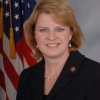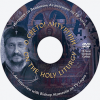I received my B.Sc. in theoretical physics from Belgrade University and a Ph.D. in physics from Brown University. I was a post-doc and then a faculty at the Institute for Brain and Neural Systems. I moved to Washington, DC in 2008 where I currently work in the Federal Government as a program manager covering the area of Mathematical Data Science.
Brown Affiliations
- Brain and Neural Systems
Education and training
- PhD. Brown University 1999
- MS. Brown University 1992
- BS. Belgrade University 1990
Awards and honors
- Brown University Research Seed Fund Award
- Brown University Brain Science Program's Pilot Research Award
Scholarly work
- P. Neskovic, I. Sherman, L. Wu, L. N Cooper. Learning faces with the BIAS model: On the importance of the sizes and locations of fixation regions, Neurocomputing 72(13-15): 2915-2922, 2009.
- J. Wang, P. Neskovic, and L. N. Cooper. Selecting Data for Fast Support Vector Machine Training. Studies in Computational Intelligence, Vol. 35, pp. 61-84, 2007.
- J. Wang, P. Neskovic, and L. N. Cooper. Improving Nearest Neighbor Rule with a Simple Adaptive Distance Measure. Pattern Recognition Letters, 28(2), pp. 207-213, 2007.
- J. Wang, P. Neskovic and L. N. Cooper. Bayes Classification Based on Minimum Bounding Spheres. Neurocomputing, Vol. 70, pp. 801-808, 2007.
- J. Wang and P. Neskovic and L. N. Cooper. A minimum Sphere Covering Approach to Pattern Classification. ICPR, pp. 433-436, 2006.
- J. Wang and P. Neskovic and L. N. Cooper. Neighborhood Size Selection in the k-Nearest Neighbor Rule Using Statistical Confidence. Pattern Recognition, 39(3), pp. 417-423, 2006.
- P. Neskovic, L. Wu and L. N. Cooper. Learning by Integrating Information Within and Across Fixations. Lecture Notes In Computer Science: Artificial Neural Networks - ICANN, Vol. 4132, pp. 488-497, 2006.
- J. Wang and P. Neskovic and L. N. Cooper. A Probabilistic Model For Cursive Handwriting Recognition Using Spatial Context. ICASSP, 2005.
- T. Steinherz, E. Rivlin, N. Intrator, and P. Neskovic. An Integration of Online and Pseudo-Online Information for Cursive Word Recognition. IEEE Transactions on Pattern Analysis and Machine Intelligence PAMI, 27(5), pp. 669-684, 2005.
- P. Neskovic, D. Schuster and L. N Cooper. Biologically inspired recognition system for car detection from real-time video streams. Neural Information Processing: Research and Development, J. C. Rajapakse and L. Wang (eds.), Springer-Verlag, pp. 320-334, 2003.
- P. Neskovic, P. C. Davis and L. N. Cooper. Interactive Parts Model: an Application to Recognition of On-line Cursive Script. Advances in Neural Information Processing Systems (NIPS), pp. 974-980. 2000.
Research overview
- My research interests are mainly in the fields of statistical pattern recognition, machine learning, and biologically inspired vision.
Funded research
- "Using advanced mathematical techniques to analyze physiological responses to stimulation of specific acupoints." The Rhode Island Foundation, PI, 2007.
- "Using physiological measurements and artificial neural networks to monitor and predict cognitive states." Research Seed Fund Award, Brown University, PI (with William Heindel), 2005-2006.
- "Visual analysis of complex scenes: breaking camouflage and detecting occluded objects using Bayesian inference." Army Research Office (ARO), W911NF-04-1-0357, Co-PI (with Leon Cooper), 2004-2009.
- "Reducing the cognitive workload while operating in complex sensory environments: constructing a recognition system that utilizes aspects of human perception and cognition." ARO, DAAD19-01-1-0754, Co-PI (with Leon Cooper), 2001-2004.
Source: Brown University






